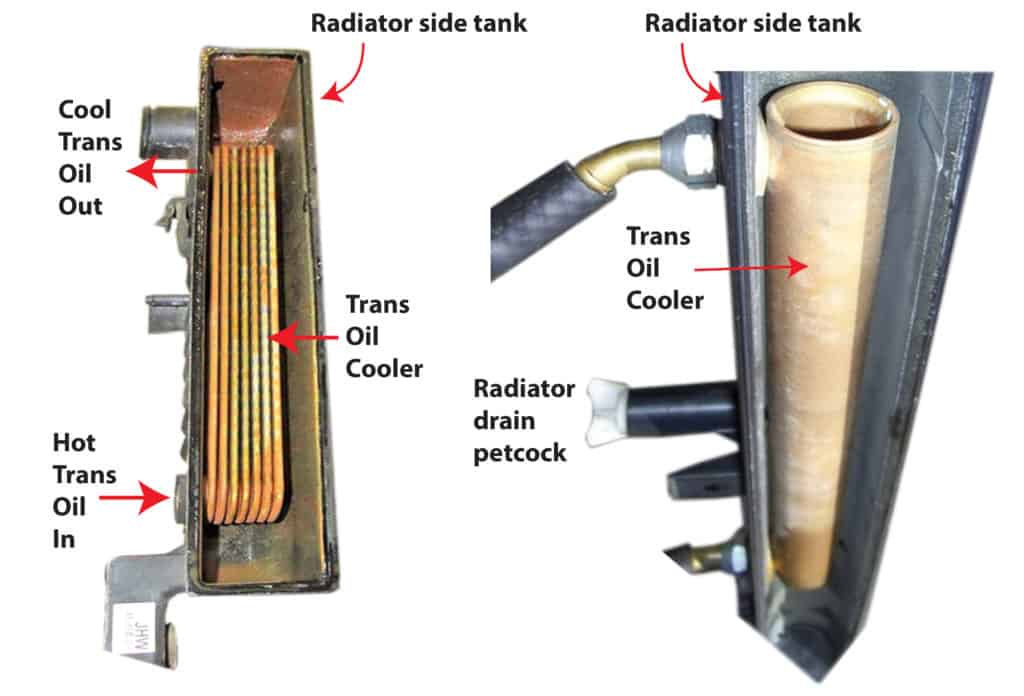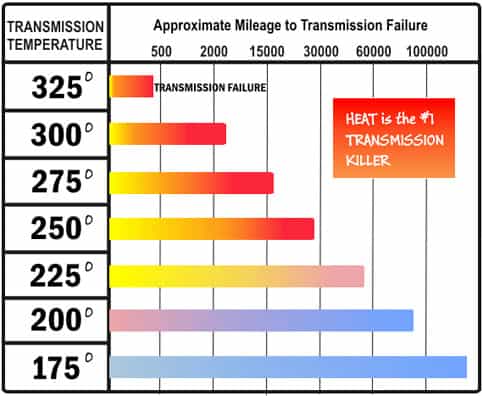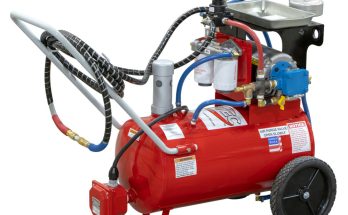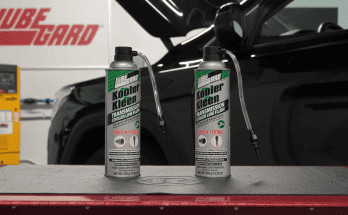The radiator is a crucial component of a vehicle’s cooling system, as it is responsible for regulating the temperature of the engine and transmission. In most automatic transmission equipped vehicles, the transmission cooler is located inside the radiator, which means that the radiator plays a crucial role in maintaining the transmission’s optimal operating temperature, so can the radiator cause transmission cooling problems?

If the radiator is not functioning properly, it can lead to a range of transmission problems such as:
- Transmission fluid overheating
- Fluid breakdown and deterioration
- Mixing of coolant and transmission fluid in radiator
- Contaminated transmission fluid
When the radiator fails to adequately cool the transmission, the transmission fluid can become overheated. This can cause the fluid to break down and become less effective at lubricating and cooling the transmission components.
Overheated transmission fluid can cause the transmission to experience a loss of power, as the fluid’s viscosity decreases and it becomes less able to transfer power from the engine to the transmission. This can lead to a noticeable reduction in the vehicle’s performance, as the transmission struggles to engage and shift gears.
In severe cases, overheated transmission fluid can cause the transmission to fail completely. The heat can cause the transmission’s internal components to warp and distort, leading to significant damage and the need for costly repairs or replacement. The below chart shows how long you can expect a transmission to last at a certain temperature.

In addition to overheating, a faulty radiator can also lead to the transmission fluid becoming contaminated. If the radiator is leaking or has developed a clog, it can allow coolant to mix with the transmission fluid. This can cause the transmission fluid to become contaminated, reducing its effectiveness and leading to transmission problems.
In some cases, a faulty radiator can also cause the transmission to experience a loss of pressure. The radiator is responsible for maintaining the correct level of transmission fluid, and if the radiator is not functioning properly, the transmission may not receive the correct amount of fluid. This can cause the transmission to lose pressure, leading to problems with shifting and other performance issues.
To prevent the radiator from causing transmission problems, it is essential to maintain the radiator and ensure that it is functioning correctly. This includes regularly checking the radiator for leaks and clogs, and replacing the radiator if it is damaged or faulty. Additionally, it is essential to use the correct type of transmission fluid and change it at the recommended intervals to ensure that the transmission is adequately lubricated and cooled.
In summary, the radiator can cause transmission problems if it is not functioning correctly. A faulty radiator can lead to overheated transmission fluid, contaminated transmission fluid, and a loss of pressure, all of which can cause significant damage to the transmission and lead to costly repairs or replacement. By maintaining the radiator and ensuring that it is functioning correctly, it is possible to prevent these problems and keep the transmission in optimal working condition.
Frequently Asked Questions (FAQs)
Can low coolant cause transmission problems?
Yes, low coolant levels in a vehicle can cause transmission problems for several reasons. First, the transmission relies on the vehicle’s cooling system to regulate its temperature and prevent overheating. When the coolant levels are low, the transmission may not receive adequate cooling, leading to overheating and potential damage to the transmission’s internal components.
Can a clogged radiator cause transmission problems?
Yes, a clogged radiator will not be able to effectively dissipate heat from the engine and transmission. This can cause the transmission fluid to overheat, leading to a loss of lubrication and increased wear on the transmission components. Overheated transmission fluid can also cause the transmission to shift harshly or even fail to shift at all.
Can a radiator leak cause transmission problems?
A radiator leak can cause transmission problems in a few different ways. Firstly, a radiator leak can cause the transmission fluid to become contaminated with coolant. This can cause the transmission fluid to become less effective at lubricating and cooling the transmission, leading to premature wear and potentially damaging the transmission.
Secondly, a radiator leak can cause the transmission to overheat. The transmission relies on the radiator to keep it cool, and if the radiator is leaking, the transmission may not be receiving enough coolant to keep it at a safe operating temperature. This can cause the transmission to fail, resulting in a loss of power and potentially requiring costly repairs.
Thirdly, a radiator leak can also cause a lack of coolant pressure in the system. The transmission relies on a certain level of coolant pressure to operate properly, and if the radiator is leaking, the coolant pressure may drop below the required level. This can cause the transmission to malfunction and potentially fail.




